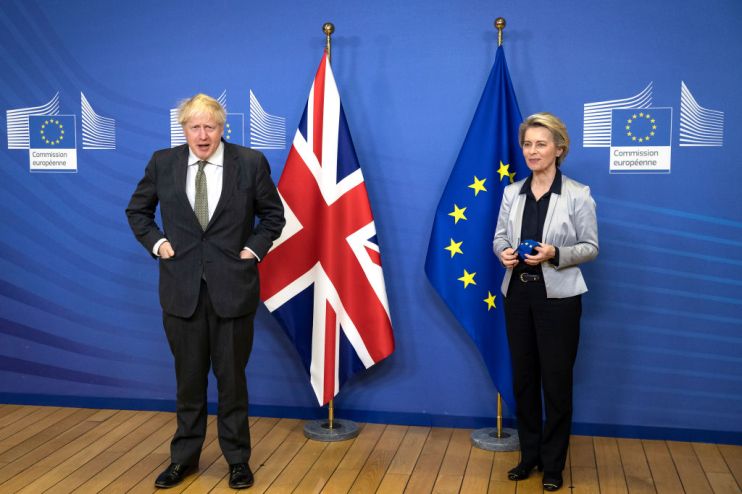UK to remind Brussels that British taxpayers paid for AstraZeneca vaccine

The UK will tell the EU next week that it must consider the millions of pounds British taxpayers spent on the creation of the Oxford University/AstraZeneca jab as the two sides look to resolve an ongoing row over vaccine exports.
The UK and EU are set to resume talks from tomorrow over Brussels’ threats to block the export of AstraZeneca vaccines manufactured at a Halix plant in the Netherlands.
European Commission President Ursula von der Leyen has publicly threatened to block shipments of vaccines from the plant destined for the UK, unless the company gives more units of the jab to EU countries.
AstraZeneca has fallen behind on its scheduled delivery of vaccines to the EU, with the pharma giant blaming production and supply chain issues for the delays.
Before the Open newsletter: Start your day with the City View podcast and key market data
The UK government made orders of the vaccine, created in Britain, earlier and on a larger scale than the EU, meaning that units manufactured in the bloc are being sent to the UK.
Von der Leyen has called for “reciprocity”, after 21m vaccine units have been sent from EU plants to the UK with none coming the other way.
The Sunday Telegraph reports that British officials will tell the EU in negotiations that it was £84m of UK government funding that helped create the jab and that without this cash no vaccine would exist.
The UK will push for overall investment into vaccines to be counted into the EU’s calculations during negotiations next week, with Boris Johnson’s government spending more than £6bn to develop and procure vaccines.
Culture secretary Oliver Dowden told Sky News today: “Our position is very clear, that the EU should not be engaging in blocking exports and that they should honour the pledge that Ursula Von De Leyen gave to Prime Minister Boris Johnson a short while ago, whereby they agreed that any contracts should be honoured, so that is to say that if vaccines have been provided in honouring of the contracts, that should be honoured by the EU and we expect them to abide by that.”